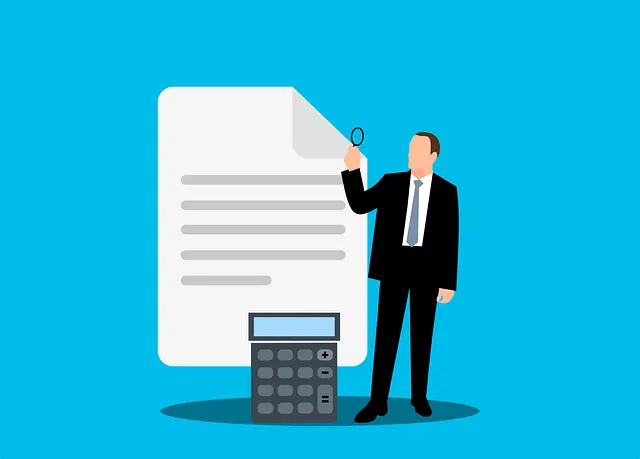Types of Online Accounting Degrees
Online accounting degrees come in various levels, including associate, bachelor's, and master's degrees, each catering to different career goals and educational backgrounds. An associate degree in accounting typically takes two years to complete and provides foundational knowledge in accounting principles, bookkeeping, and financial management. A bachelor's degree offers a more comprehensive education, covering advanced topics such as auditing, taxation, and financial analysis. For those looking to deepen their expertise, a master's degree in accounting provides advanced coursework and may offer specialization options in areas such as forensic accounting or international accounting.
Accreditation and Program Quality
When choosing an online accounting degree program, accreditation is a crucial factor to consider. Accreditation ensures that the program meets established educational standards and provides quality instruction. Accredited programs are typically recognized by industry and professional organizations, which can enhance the value of your degree and improve your job prospects. Look for programs accredited by reputable agencies such as the Association to Advance Collegiate Schools of Business (AACSB) or the Accreditation Council for Business Schools and Programs (ACBSP). Accreditation not only validates the program's quality but also may be required for certification and licensure.
Flexibility and Convenience
One of the major advantages of an online accounting degree is the flexibility it offers. Online programs allow students to complete coursework from anywhere with an internet connection, making it possible to study at their own pace and on their own schedule. This flexibility is particularly beneficial for working professionals, parents, or individuals with other commitments who need to balance their studies with personal responsibilities. Online programs often provide asynchronous classes, allowing students to access lectures, assignments, and discussions at times that suit them best, thereby accommodating diverse schedules and learning styles.
Curriculum and Coursework
The curriculum of an online accounting degree program typically includes core courses in financial accounting, managerial accounting, auditing, taxation, and business law. Advanced courses may cover topics such as forensic accounting, accounting information systems, and international accounting standards. Many programs also incorporate practical components, such as virtual simulations or case studies, to provide hands-on experience. Additionally, some programs offer elective courses or specializations that allow students to tailor their education to their specific interests or career goals. The curriculum is designed to provide a comprehensive understanding of accounting principles and practices.
Cost and Financial Aid
The cost of an online accounting degree varies depending on the institution, program level, and residency status. Online programs often have lower tuition rates compared to traditional on-campus programs, and they eliminate the need for commuting or relocation expenses. Financial aid options, such as scholarships, grants, and student loans, may be available to help offset the cost of tuition. Prospective students should research financial aid opportunities and consult with the financial aid office of their chosen institution to explore funding options and determine eligibility for various forms of assistance.
Career Opportunities and Job Outlook
An online accounting degree can open the door to a wide range of career opportunities in various sectors, including public accounting, corporate finance, government, and nonprofit organizations. Graduates may pursue roles such as certified public accountants (CPAs), financial analysts, auditors, tax advisors, or management accountants. The job outlook for accountants is generally positive, with strong demand for skilled professionals driven by the need for financial oversight, regulatory compliance, and strategic financial planning. According to the Bureau of Labor Statistics, employment in accounting and auditing is projected to grow, offering robust career prospects for graduates.
Certification and Licensure
For many accounting careers, obtaining certification or licensure is essential. The Certified Public Accountant (CPA) designation is one of the most widely recognized and respected certifications in the field. Online accounting degree programs may prepare students for CPA exams and provide the necessary coursework to meet licensing requirements. In addition to the CPA, there are other certifications, such as Certified Management Accountant (CMA) or Certified Internal Auditor (CIA), that can enhance career prospects and demonstrate specialized expertise. It is important for students to understand the certification requirements in their desired career path and ensure their program meets those needs.
Networking and Professional Development
Networking and professional development are important aspects of a successful accounting career. Many online accounting programs offer opportunities for students to connect with industry professionals, participate in virtual networking events, and engage in professional organizations. Joining accounting associations or attending industry conferences can provide valuable connections and insights into the field. Additionally, some programs offer career services, including resume building, interview preparation, and job placement assistance, to help students transition from education to employment. Building a strong professional network and staying engaged in the industry can contribute to long-term career success.
Conclusion
Pursuing an online accounting degree provides a flexible and convenient pathway to a rewarding career in accounting. With various degree options, a focus on accreditation and program quality, and a range of career opportunities, online programs offer a viable solution for those seeking to enter or advance in the field. By considering factors such as curriculum, cost, certification, and professional development, prospective students can make informed decisions and set themselves up for success. An online accounting degree not only equips students with essential knowledge and skills but also prepares them for a dynamic and growing profession in the financial sector.

